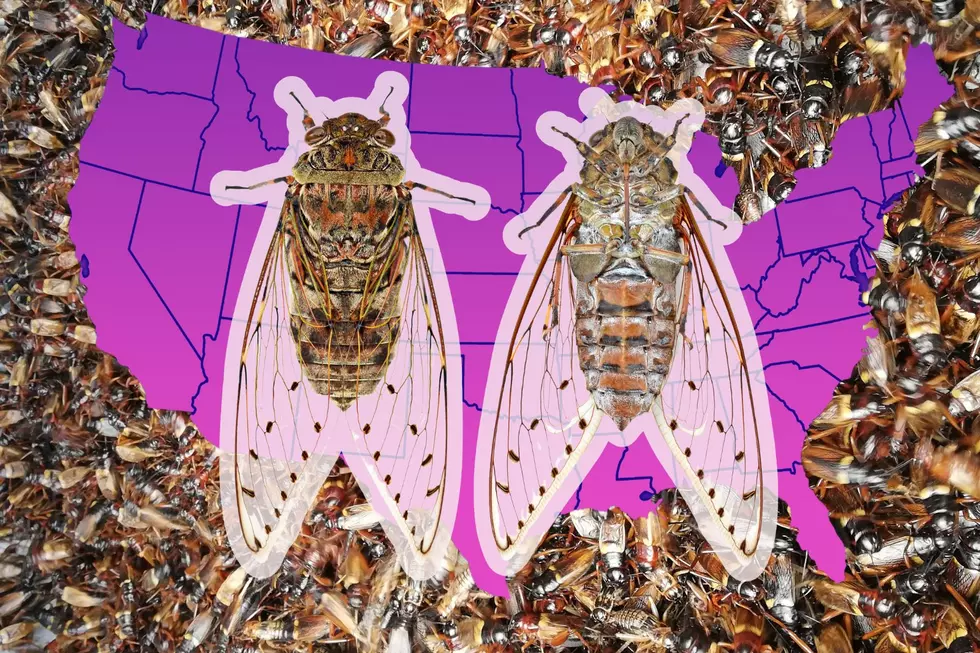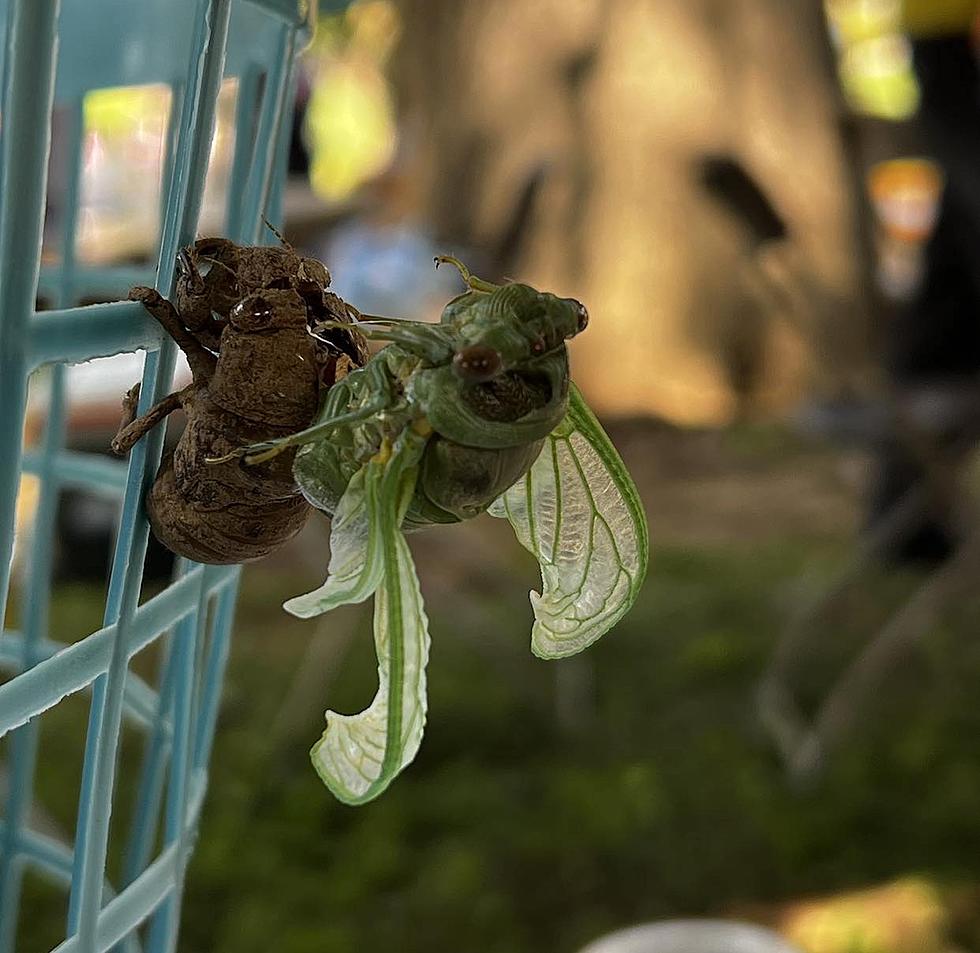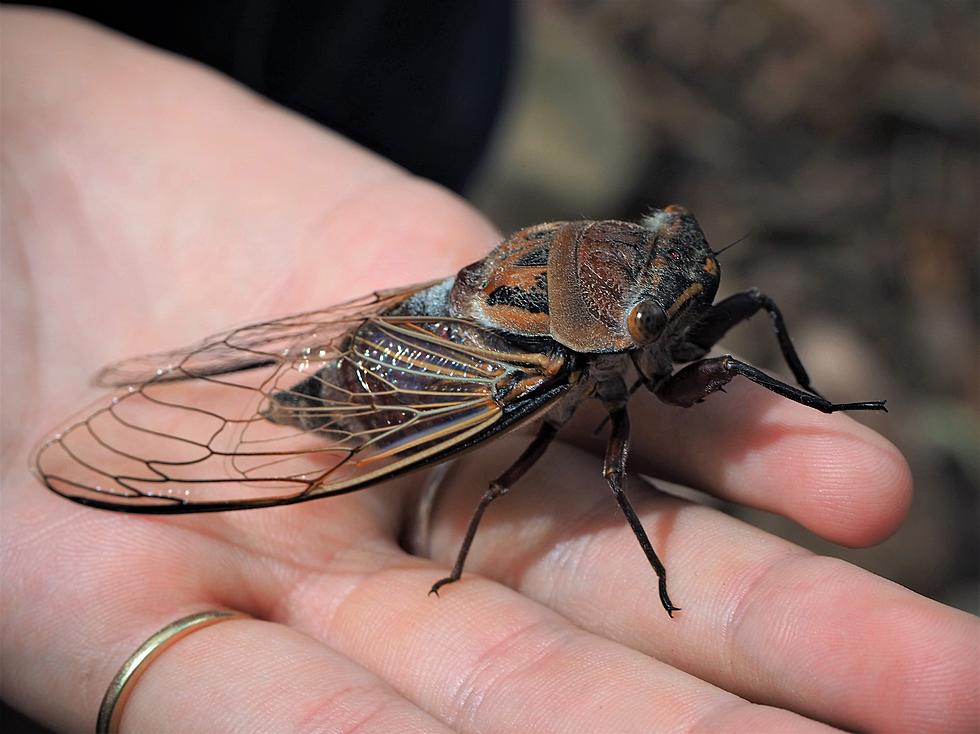
Oh Great, “Cicada-geddon” 2024 Will Also Include “Zombie Cicadas”
This year, nature is all about making history. We have just now calmed down from all of the once-in-a-lifetime eclipse excitement only to brace ourselves for what has been named, "Cicada-geddon."
What in the World is Cicada-geddon?
In a very rare occurrence, two separate groups or "broods" of Cicadas will be in full force this spring. I have seen the word "billions" and the word "trillions" tossed around as an estimate for just how many will swarm the Southeastern and Midwestern United States. Either way, it will be a LOT of screeching bugs doing their thing.
Where and When Will These Cicadas Emerge?
According to CBS News, "Periodical cicadas spend most of their lives underground and only emerge after 13 or 17 years. This year, two broods of cicadas will emerge: Brood XIX, which comes out every 13 years, will emerge in Georgia and Southeast, and Brood XIII, which emerges every 17 years, will appear in Illinois."
Luckily for those of us in Kentucky and Indiana, we won't see a massive amount of cicadas. Experts believe that Western Kentucky will see Brood XIX emerge, and Southern Indiana will also see some, but nothing like states like Illinois will experience. You can read more about that here:
Zombie Cicadas? For Real?
Thanks to a weird fungus called "Massospora cicadina" that takes control of the insect by dispersing spores in the soil. Scientists are not completely sure whether the infection happens when they're born, while they're waiting to dig to the surface or as they emerge, but once they are above ground, the spread of the pathogen doesn't stop.
Horny Fuzzy Zombie Bug STD
I know it may sound like I am joking at this point, but the fungus that infects the Cicadas is classified as a sexually transmitted disease. That's because it has evolved to make the best use of its host for as long as possible. The spores of the disease aren't just transmitted through soil. Once a cicada is infected, a fuzzy white growth develops on it's rear replacing its genitals.
One might think that would slow the bug down from getting busy, but no sir! The disease actually takes over the cicada and switches its instinct to procreate into hyperdrive. In the same CBS News story referenced above, Matthew Kasson, an associate professor of Mycology and Forest Pathology said,
"There's this hyper-sexualized behavior. So, males for example, they'll continue to try and mate with females — unsuccessfully, because again, their back end is a fungus. But they'll also pretend to be females to get males to come to them. And that doubles the number of cicadas that an infected individual comes in contact with."
Well...great...
Will This Harm Other Animals?
Normally a Cicada or two isn't a bad snack for your pet. It is a source of protein after all. However, it isn't known how this fungus or other spores in the soil might harm other animals, so its best to monitor their activity if possible.
I don't know about y'all, but I gotta be honest. I'm a little nervous about what Mother Nature may have in store for us for the rest of 2024!

LOOK: 11 tick-borne illnesses and what to watch out for during your outdoor adventures
Gallery Credit: Martha Sandoval
More From WBKR-FM









